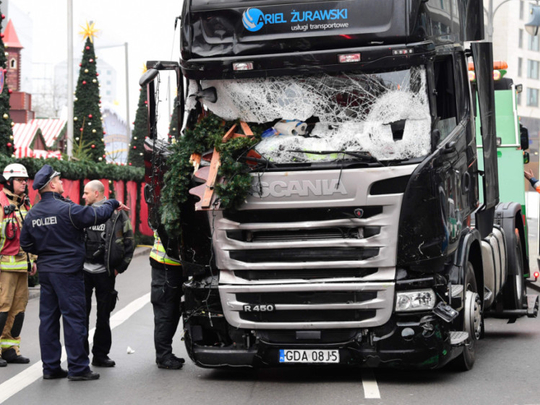
In the days following the Berlin truck attack, all of Europe was gripped by the manhunt for the suspect, Anis Amri, who was shot and killed by Italian police on Friday.
“Twelve people are dead, many more are injured, and this shortly before Christmas. All they wanted to do was enjoy a nice evening on the town, to take a break from the hustle and bustle of daily life ... It’s always difficult to put words to the suffering that people can inflict on other, completely innocent people. In Aleppo, in Nice, in Orlando or, now, here in Berlin,” said the Der Spiegel in an editorial.
Advocating reason and caution as the key approaches to tackling the situation, the newspaper said: “The attack on a peaceful market in Berlin provides a shocking demonstration of just how vulnerable Germany has become. Despite this, because of it, we must keep our cool. We must remain calm and stay reasonable, even if that is difficult to do. Acting reasonably means ensuring that hatred, distrust between Germans, foreigners, Muslims, the West or the South or the East doesn’t continue to grow. Hysteria, xenophobia or lashing out blindly neither helps anyone nor solves any problems.”
The USA Today sought to connect the dots between the spate of attacks over the past couple of weeks and said: “A truck ploughs into a crowded Berlin Christmas market, killing and injuring innocent people. A Turkish police officer — shouting phrases about Aleppo — shoots and kills the Russian ambassador to Turkey in Ankara. A shooter enters an Islamic centre in Zurich and injures three people gathered for prayers. Once again, the events of daily life turn deadly on the other side of the globe. Once again, we see the fine line between civilization and chaos.”
The Wall Street Journal noted that the Berlin attack was similar to the summer’s truck attack that killed 86 in the French resort town of Nice. “The terrorists targeted quintessential national traditions: in Nice, the commemoration of the birth of French democracy; in Berlin, the festive Christmas market German cities have hosted since the Middle Ages. These are assaults on European culture and values,” the paper said.
“The result in this instance is a tragedy for the victims and their families, and also a warning to Mrs [Angela] Merkel. Germany is due for a wrenching debate about how to balance the fear of its past against the severity of the dangers it faces now. Mrs Merkel’s magnanimous welcome last year must be tempered by real-world threats that are growing,” it added.
The Guardian, by contrast, framed the attacks through a nuanced debate on the way forward for humanity. “The murderous acts this week bring into sharp relief the threat in Europe and its neighbours from within and without ... When terrorists, rather than criminals, perpetuate violence, governments often respond in extraordinary ways. This is the worry in Germany, which, thanks to its emphasis on personal privacy and its open attitude to refugees, has been seen as a liberal beacon in western Europe. Its politicians, however, have responded with calm and restraint,” the paper said.




_resources1_16a31069e4e_small.jpg)






